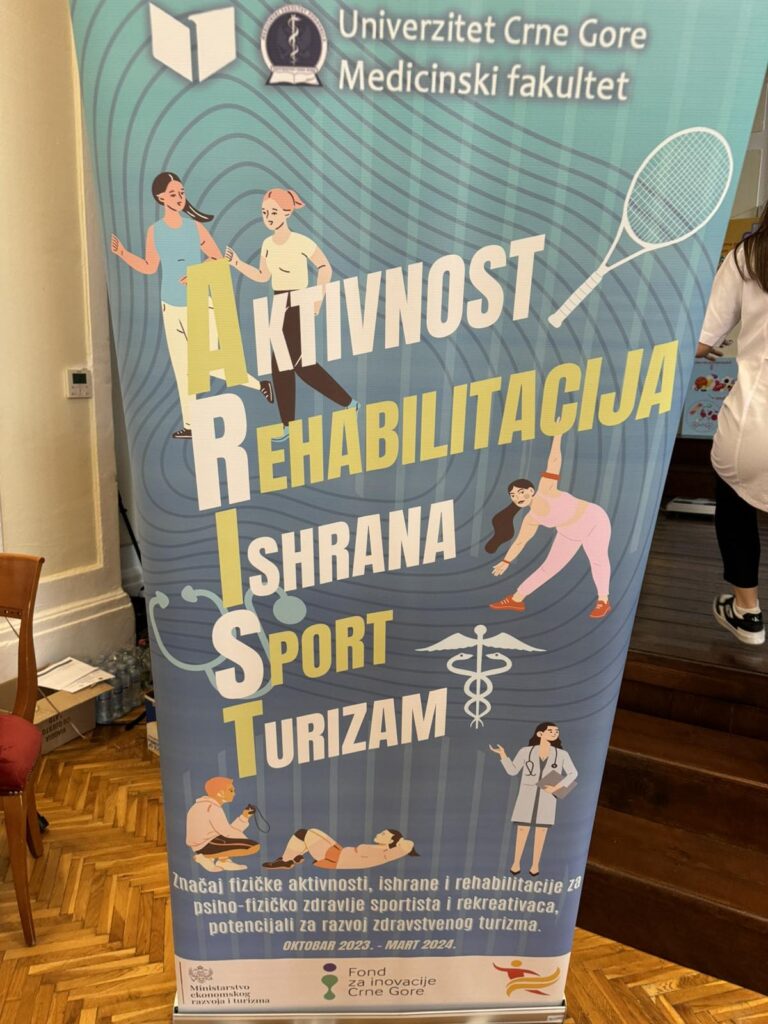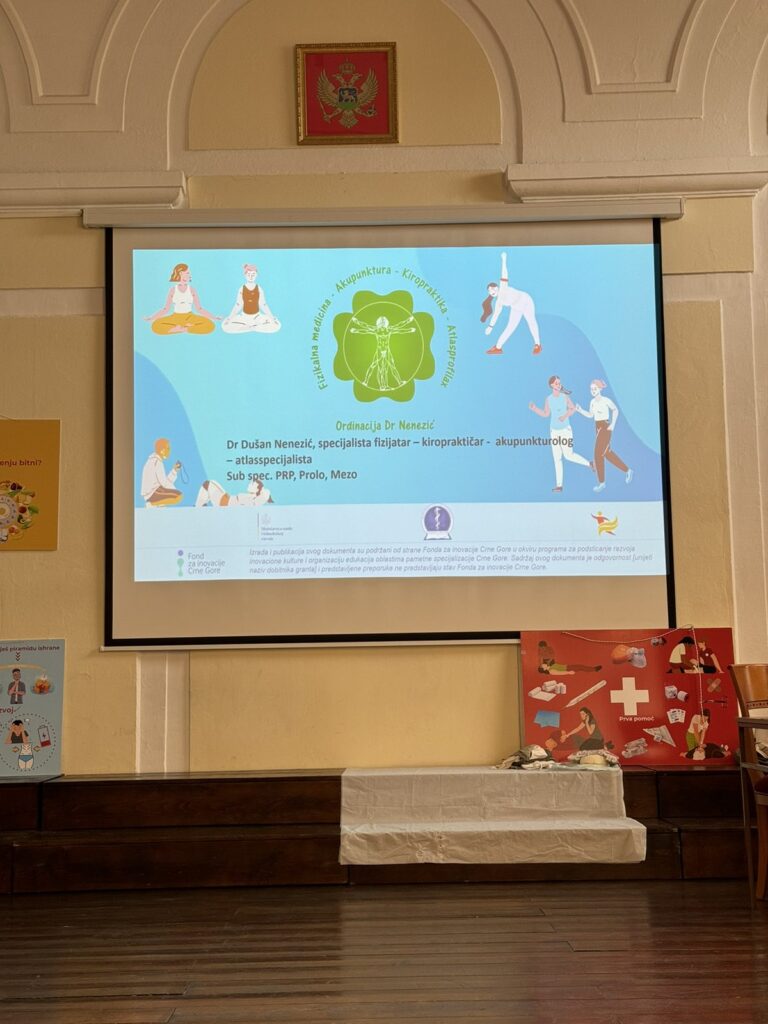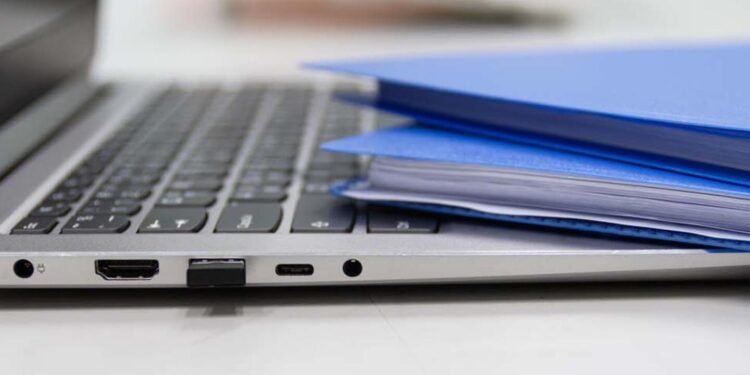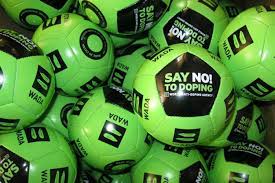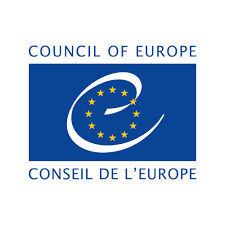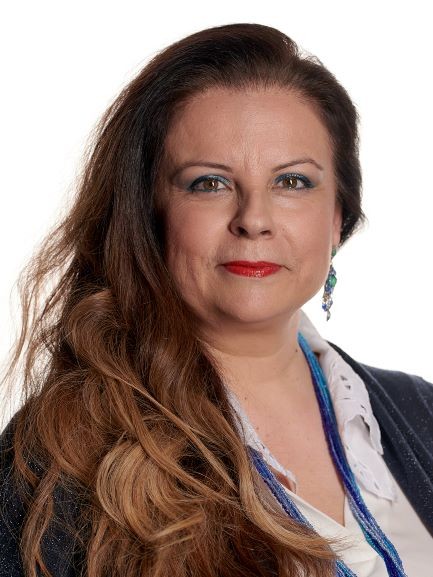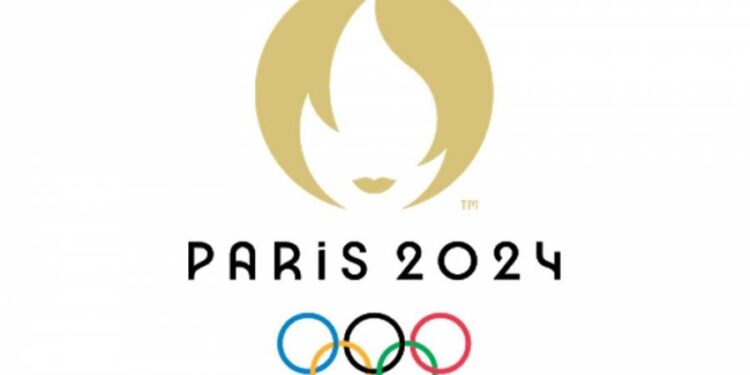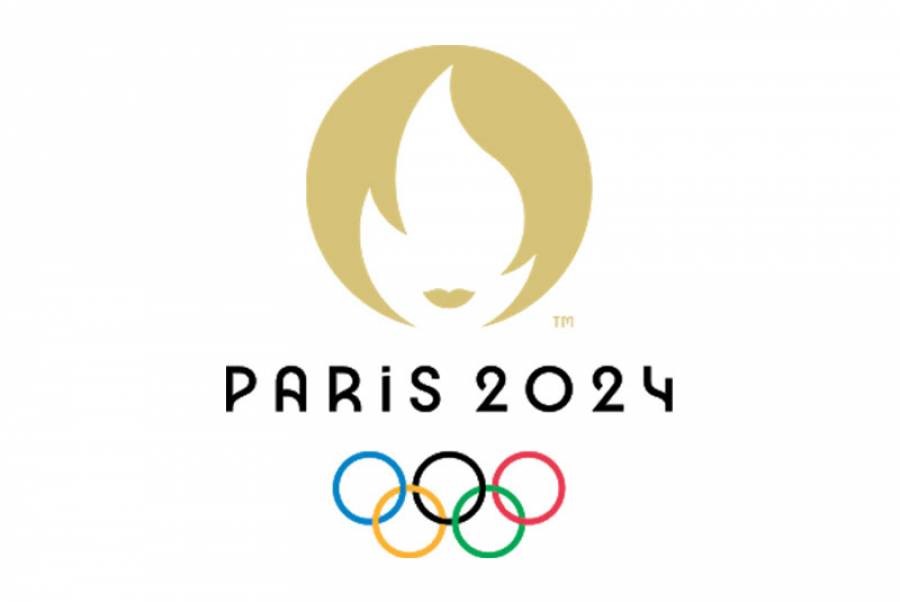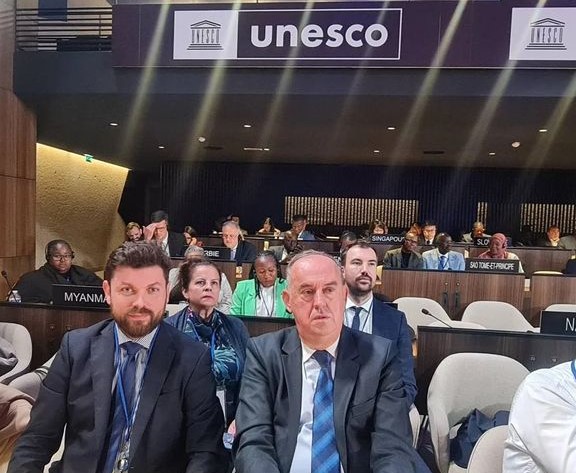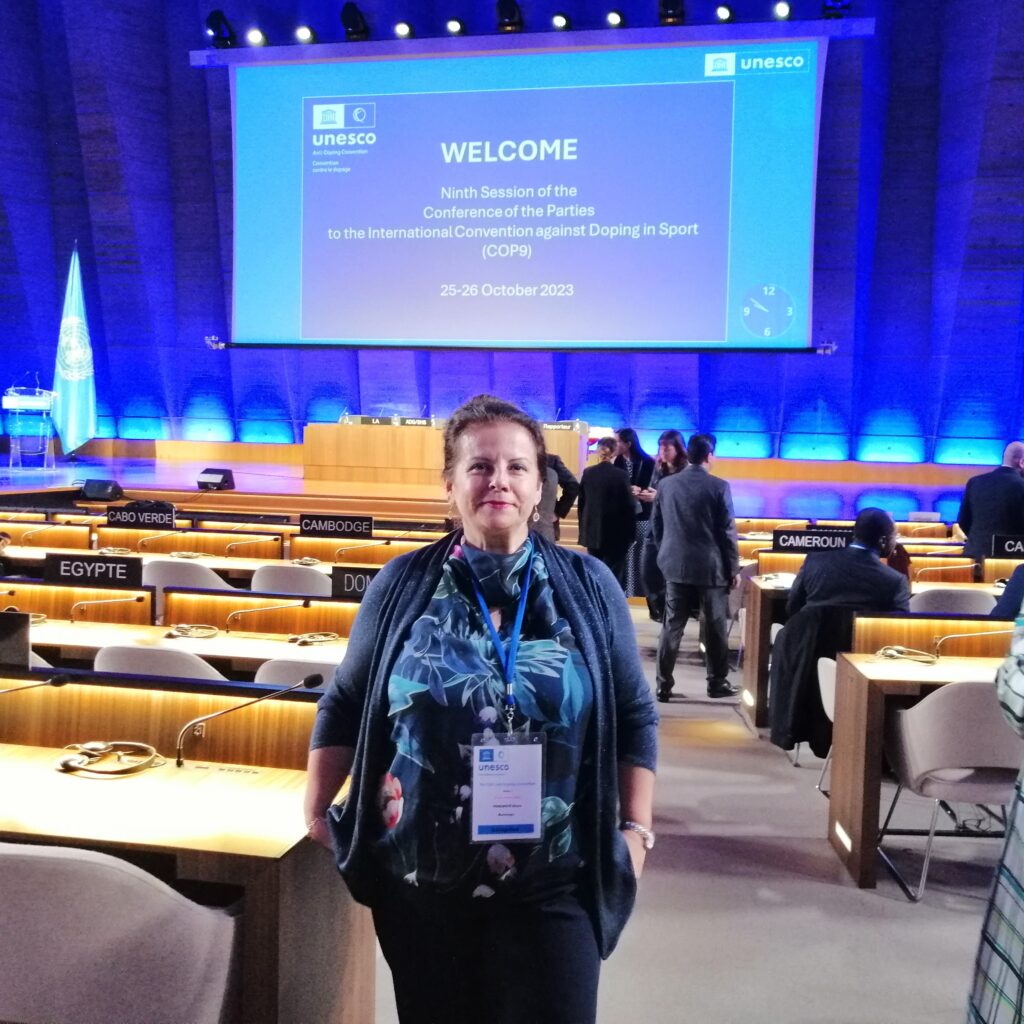Conference entitled “The importance of physical activity, nutrition and rehabilitation on the psycho-physical health of athletes and recreational athletes, the potential for the development of health tourism – ARIST”, organized by the Faculty of Medicine of the University of Montenegro with the support of the Innovation Fund of Montenegro, Ministry of Tourism, Ecology, Economic Development and Development of the North, and the Anti-Doping Commission, will be held on May 14, 2024, from 11:00 a.m. to 2:00 p.m. in the amphitheater of the Faculty of Medicine Podgorica.
The Conference is organized in order to present an innovative educational project financed by the Innovation Fund of Montenegro and to promote the obtained results in the fields of health, sports and tourism. In this way, we want to point out the importance of establishing and maintaining cooperation between different sectors of society – academic, public, business and civil sectors, all in order to ensure quality support to civil society at different levels.
Successful examples of intersectoral cooperation will be presented at the Conference, and how important this cooperation is, whether it is strong enough and what needs to be done to establish a sustainable system for supporting civil society in Montenegro will be discussed.
The Anti-Doping Commission is proud to be one of the partners in this project, points out Dr. Olivera Prodanović, Director of the Anti-Doping Commission.





